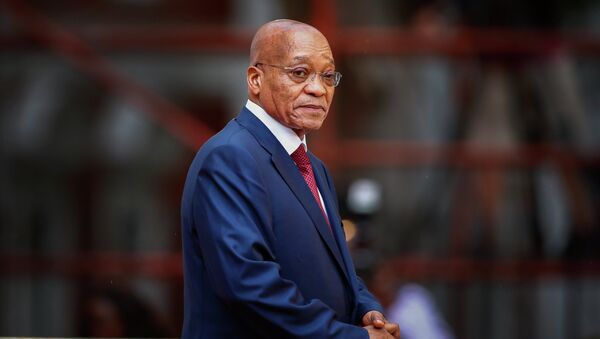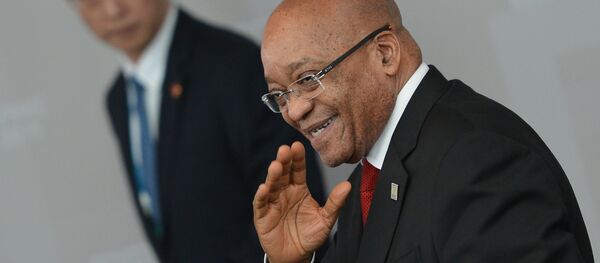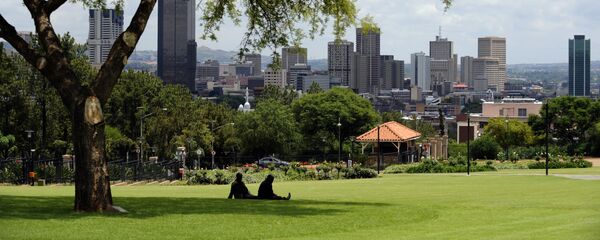Kristian Rouz – Albeit South Africa’s economy has expanded by 3.3pc in the second quarter, the looming credit rating downgrade speculation, fueled by the political turmoil, has resulted in the near-zero growth expectations for this year. On Tuesday, President Jacob Zuma voiced his support for Finance Minister Pravin Gordhan, who is facing charges of fraud and corruption, also having said the economy is still facing “major challenges”.
Delivering a speech before the Head of Missions conference of top diplomats who represent South Africa abroad, Zuma stressed that “only dictatorships have no problems”.
“You have a responsibility to brief your host countries about our broad-based black economic transformation. They need to understand our economy when they seek business opportunities in our country,” Zuma said.
His government’s latest effort has been to persuade international investors that South African state-owned enterprises (SOEs) are a dynamic catalyst for economic growth, expected to stagger near-zero this year, according to South African Reserve Bank’s (SARB) observations.
“Our efforts of revitalizing the economy also include transforming our state owned enterprises to advance inclusive economic growth. A lot of discussion is taking place in government on how to make the SOEs function better and not to be a drain on the national fiscus, but to be catalysts for development,” Zuma said.
In his speech, Zuma reiterated that South Africa has a “stable economy”, backed by the local government elections that took place in August had shown the eroding popular support for his ruling party, the African National Congress (ANC).
The opposition party Democratic Alliance (DA), advocating a right-wing market economy-friendly agenda, has solidified its control over most metro and local municipalities in the province of Western Cape, also expanding their influence by forming coalitions in parts of Gauteng, Limpopo, Eastern Cape, Free State and Northern Cape. Overall, in metro municipalities, the ANC lost four local majorities and gained one coalition, whilst the DA’s amount of majorities remained unchanged, with the party gaining one coalition and two minorities. In district and local municipalities, the ANC lost 13 governments; the DA won 7 2/3.
Despite his party’s loss of political influence, Zuma has capitalized on the electoral results by stressing that South Africa “is a democracy”, potentially a more investor-friendly message, and saying that his government is open to discussion on key matters.
“Democracies go through difficulties, precisely because they are democracies. Only in the autocratic dictatorships… there are no problems. When the ruler says they want a bridge here, there is no debate, the bridge will be constructed. No one says there is no money. Democracy is a wonderful system but it is indeed painstaking,” Zuma said.
The conference was held in Pretoria, hosted by the Department of International Relations, and underscores the South African government’s efforts to do whatever it takes to prevent a credit rating downgrade by international rating agencies, most notably, Standard & Poor’s. The next S&P rating decision is due in early December. Currently, South Africa’s rating is just one step above the non-investment level, with a ‘negative’ outlook.




